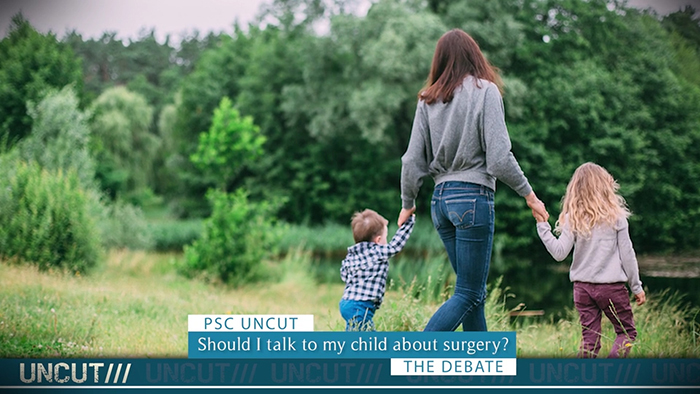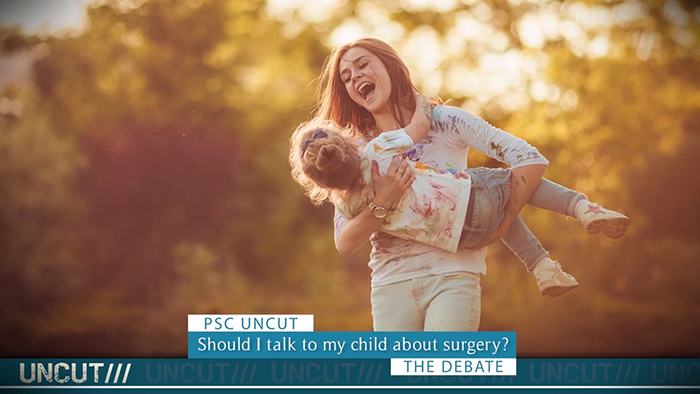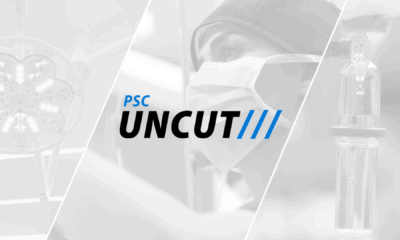In many ways, we live in a world where oversharing is the norm. Just take a casual stroll through any of your social media sites and you will probably learn more about your friends, family and children than you ever wanted to know. However, when it comes to plastic surgery, silence is more often than not the name of the game. Making the choice to tell your friends, co-workers, and distant family about the “work” you’ve had done should always be a personal choice. Your children, on the other hand, are going to know that something has changed, so what do your tell them? Our panel of experts discuss the best ways to handle plastic surgery with your children.
What You Say Will Depend on the Age of Your Child
During the initial consultation, Dr. Laurie Casas of Chicago, IL will always ask her patients about their kids. What are their ages? Where are they in terms of their social development? If a child is at a fragile state in his or her development, such as a preadolescent girl, “they don’t want to see their Mom change.” Casas will typically advise her patients to have their surgery – such as a tummy tuck or a breast augmentation – when the kids are away at camp or visiting a grandparent. Dr. Charles Messa of Westin, FL believes it’s important for children, especially young children, to understand that something has happened to Mom’s body that needed to be fixed.

Restorative Versus Cosmetic
Both Casas and Messa agree that it’s critical when talking about plastic surgery, especially mommy makeovers, that it’s referred to as a restorative procedure as opposed to a cosmetic one. The last thing that any mother wants to do is to make her child feel as if the surgery is somehow his or her fault. So, when discussing a tummy tuck, liposuction, or breast augmentation with your child, it’s imperative that you talk about how the surgery is restoring what you had as opposed to fixing something that was broken during your pregnancy. And don’t shy away from involving your children in your post-operative recovery. It’s good to make them feel part of the process as long as they aren’t too involved in the medical side of things such as your incisions.
What should you do when there’s a really obvious change such as a facelift? Even the most well-adjusted child is going to worry when he or she sees your bruised and bandaged face. The best plan of action will probably be to have the surgery while the child is away or at least recuperate elsewhere for at least the first few days. And again, discuss the surgery in terms of it being restorative. Even though your face may look different, you haven’t changed who you are. It is imperative for your kids to know that you are still the same person — that you are still their Mom.






Facebook
Twitter
Instagram
YouTube
RSS